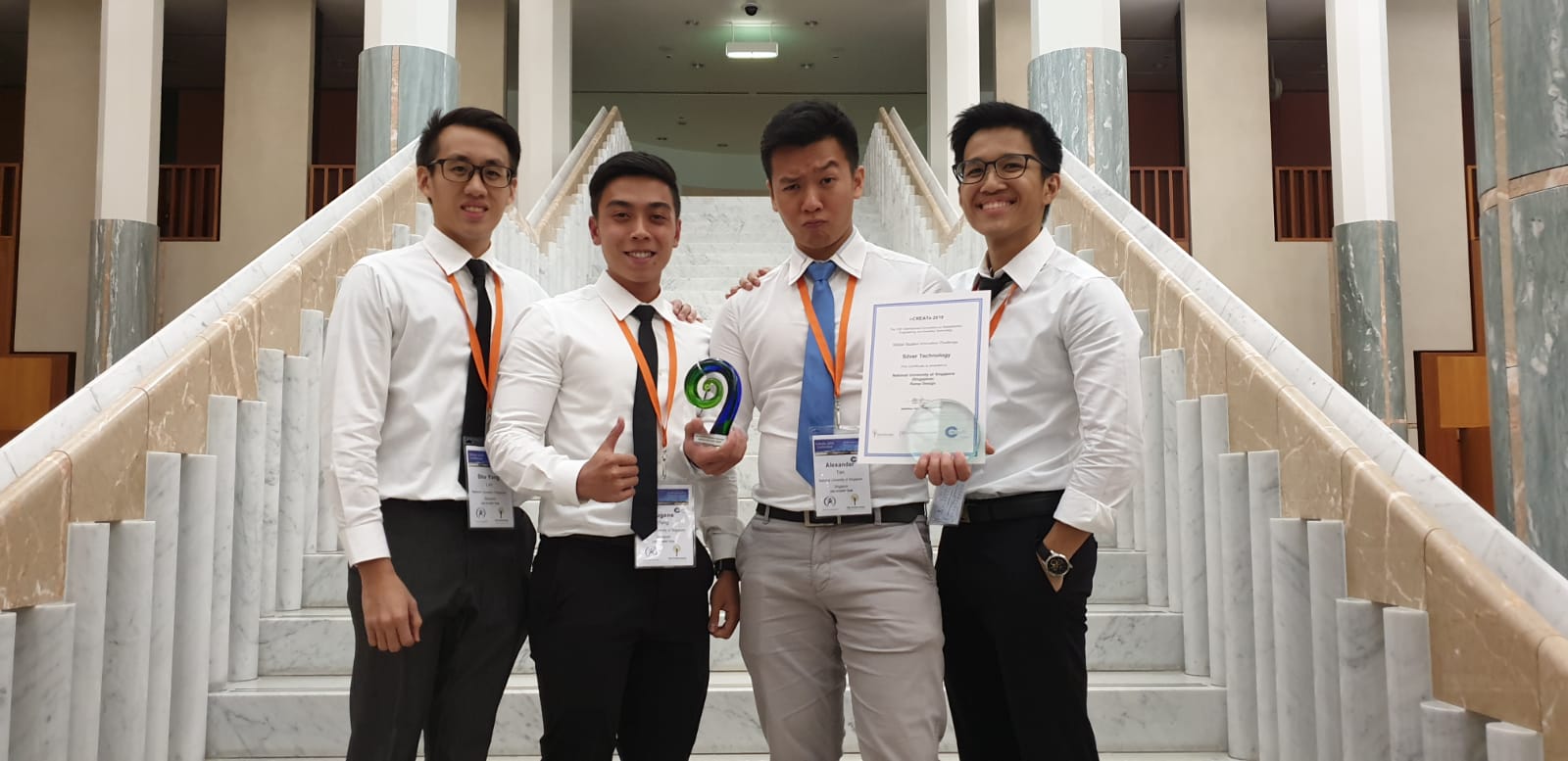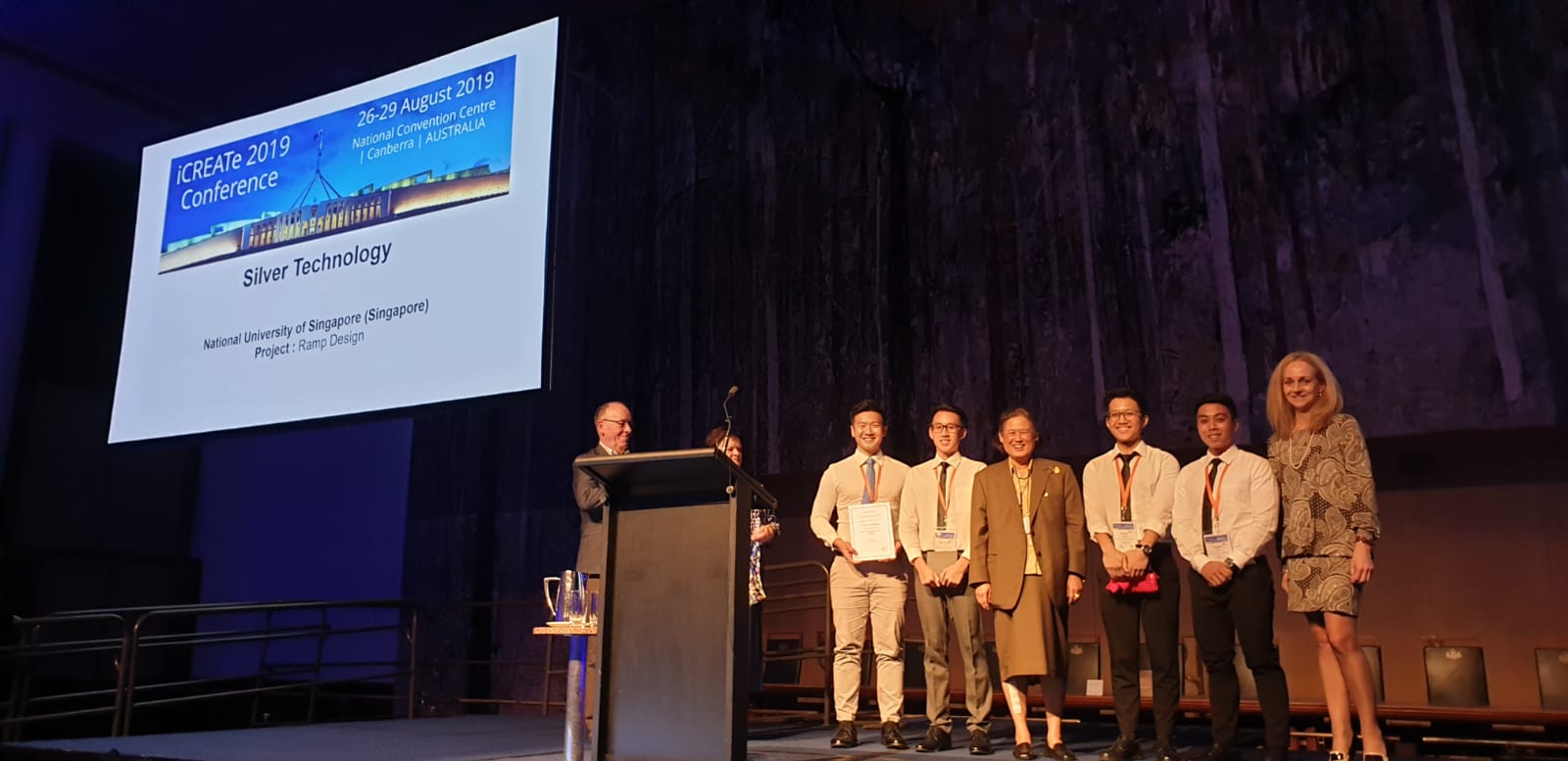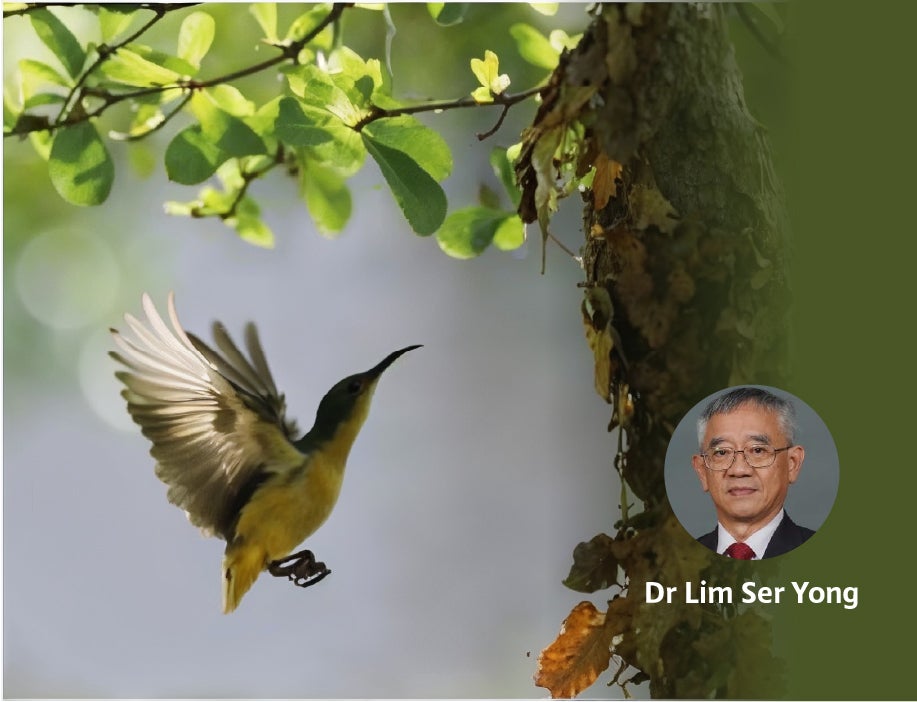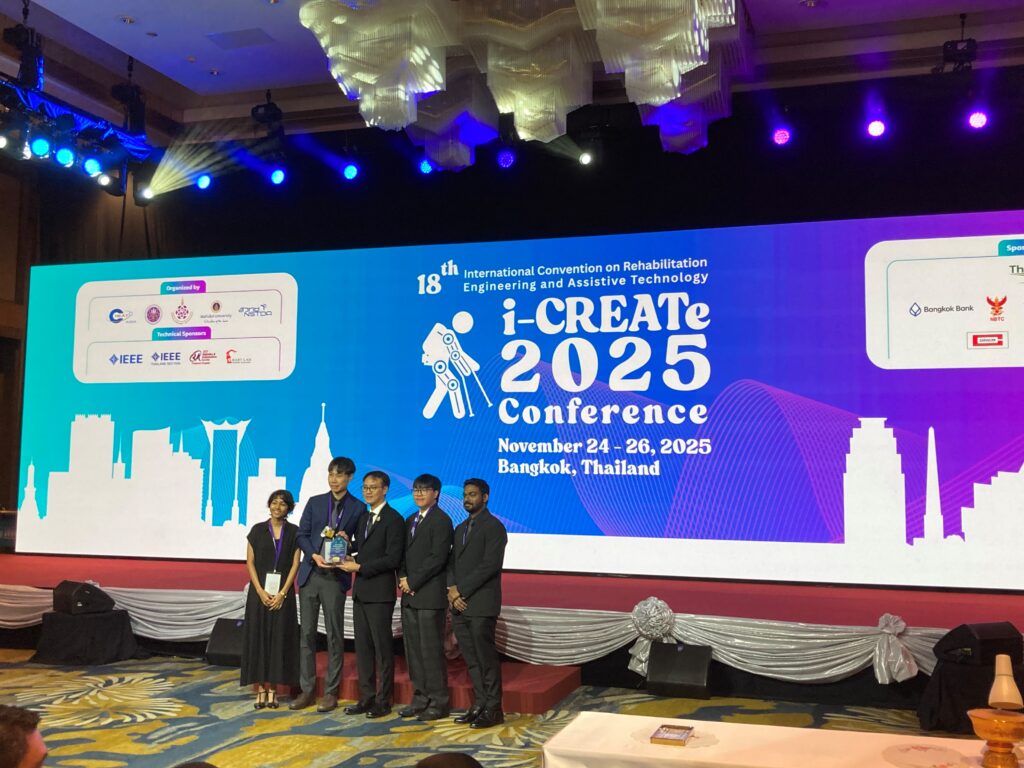

The team receiving their Silver Award from Her Royal Highness Princess Maha Chakri Sirindhorn of the Kingdom of Thailand.
Congrats to NUS Mechanical Engineering students Alexander Tan Yong Meng (Group leader), Chew Hui Yong Kester, Lim Shu Yong, Eugene Pang Yuan Jing and Joshua Goh Yong Sheng!
The team clinched the Silver award (2nd place, Technology Category) for their ramp design at the 13th International Convention on Rehabilitation Engineering and Assistive Technology (iCREATe)’s Global Student Innovation Challenge in Canberra!
They designed a ramp made of recycled cardboard that can take a load up to 300kg. It’s therefore cheaper to make and eco-friendly, and is also compressible for easy storage when not in use. Check out a feature of their project here: http://bit.ly/2NDNmr6.
Description of their project – “Ramp Design”:
Our team has developed a water-resistant, fire-retardant, recycled cardboard ramp able to configure to 1-5 steps and curve a radius of beyond 90 degrees for deployment in constrained areas. The prototype ramp has been constructed such that it is made up of stages that are joined together to form the entirety of the ramp. The stages are held together by detachable yet reliable fasteners that allow for easy repair and replacement of the parts of ramp. These stages cater for different stair configurations and also for compactness when stowage. Additionally for stowage, the prototype ramp is collapsable due to the way the cardboard is interlaced and can be compressed about 70-80% of its original length. The prototype ramp has an incline of about 10 degrees and a textured surface to provide friction for rolling of the wheelchair going up and assists with grooves when the wheelchair is going downwards. The current first prototype was deliberately over-designed for safety as proof of concept and has a safety factor of about 3-5 times the required amount. The current recycled cardboard used is in collaboration with a cardboard manufacturer in Singapore which produces its own recycled cardboard from pulp. Water-resistant and fire-retardant chemicals allow the cardboard to withstand certain weathering conditions and is safe for keeping in public housing while the material remains eco-friendly. The total material cost of the entire ramp is about SGD $420-$450, comparatively cheaper for commercially available aluminum ramps at SGD $600-800. We hope to lower this cost substantially through re-design and bulk production. Further development of the project includes experimental usage of recycled plastics and other materials. As well as lightening the overall weight of the ramp and increasing ergonomics and aesthetics for potential commercialisation. Integration of smart devices into the ramp is also an additional potential aim of the product.





